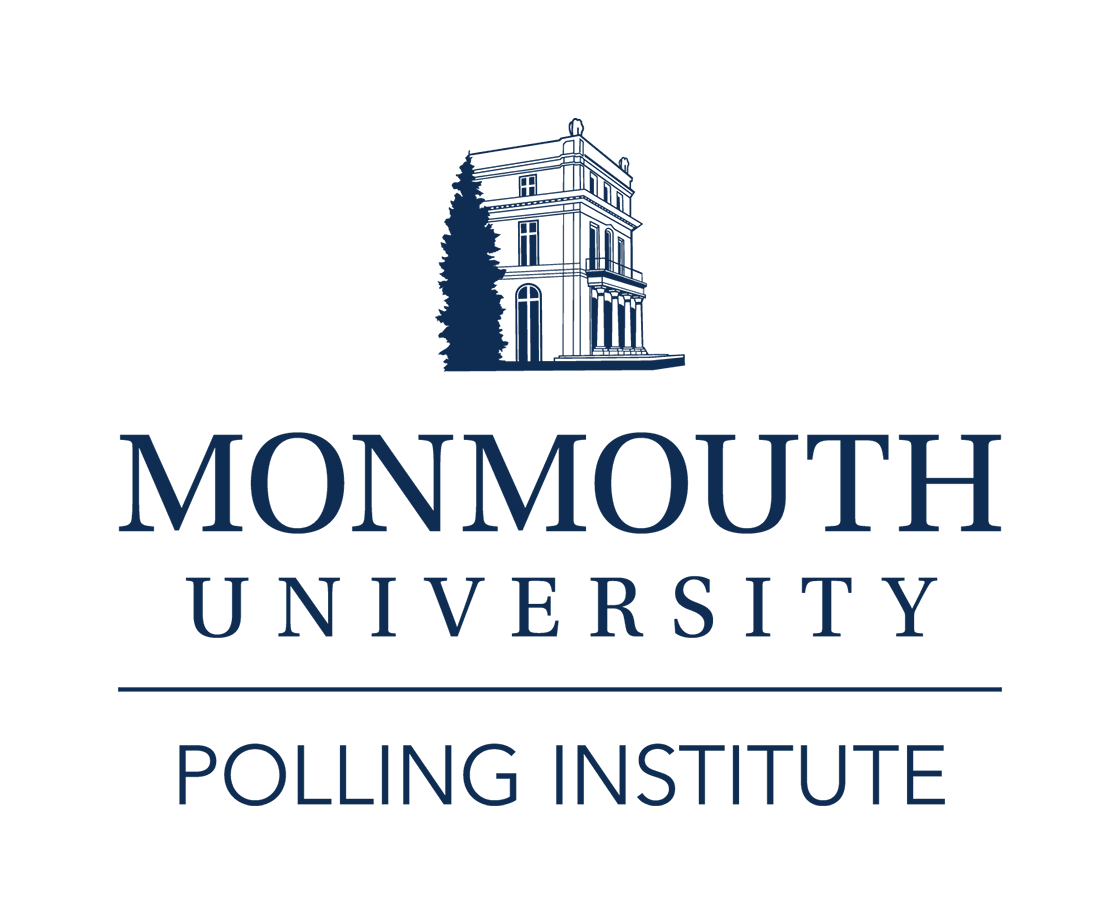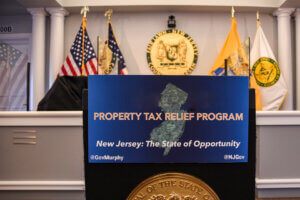Memo to state legislators preparing to hold a special session on property tax reform: The New Jersey public is willing to entertain consolidation and shared services to get significant property tax reform. However, the latest Monmouth University/Gannett New Jersey Poll also has this message from taxpayers: Don’t even think about cutting important services or raising other taxes as a way to funnel money into property tax relief.
“New Jersey public opinion can best be summed up as wanting reform, not relief,” remarked Patrick Murray, director of the Monmouth University Poll Institute. “When it comes to getting significant, permanent cuts in their property taxes, New Jerseyans appear willing to put the sacred cow of home rule on the bargaining table.”
The poll asked residents how willing they were to accept a mix of 11 potential mechanisms for lowering property taxes, including hikes in other taxes, service cuts, and structural changes in government. Of these, very large majorities say they would be at least somewhat willing to share municipal services with a neighboring town, ranging from public works and maintenance departments (79%) to more sensitive emergency services such as fire and police (70%). In fact, 4-in-10 residents say they would be “very willing” to share these services in return for a significant reduction in property taxes.
Majorities say they would also accept merging their school district with a neighboring one (58%) and changing the system of collecting property taxes to have a statewide authority collect the tax and then redistribute the funds to local districts (55%). For these proposals, the number who are the most supportive stands at 32% for school regionalization and 19% for statewide property tax collection.
| Tradeoffs to get significant property tax savings | Very Willing | Total Willing |
| Sharing public works and maintenance departments with a neighboring town | 39% | 79% |
| Sharing emergency services such as fire or police with a neighboring town | 41% | 70% |
| Merging your school district with a neighboring school district | 32% | 58% |
| Having a statewide agency collect property taxes and then redistribute the funds to local school districts | 19% | 55% |
| Reducing pension and other benefits for government workers | 24% | 47% |
| Raising the sales tax by another 1 percent | 14% | 38% |
| Placing an annual tax on personal property, such as cars and boats | 7% | 34% |
| Cutting state funded healthcare for the poor | 8% | 23% |
| Cutting extra-curricular programs in public schools, such as after-school programs and athletics | 8% | 22% |
| Raising the income tax by 10 percent | 7% | 18% |
| Cutting services for senior citizens | 2% | 12% |
On the other hand, large majorities of New Jerseyans say they are “not at all willing” to accept a variety of service cuts and other tax hikes to get significant property taxes relief. These include cutting services to seniors (73% not at all willing), raising the income tax by 10% (66%), cutting after-school programs (63%) and cutting health care for the poor (60%). Sizeable segments of the public are also very opposed to establishing an annual tax on personal property such as cars or boats (51%) and raising the sales tax by another 1 cent (50%). When it comes to reducing pension benefits for state workers in order to achieve property tax relief, 47% of the public are supportive while 51% are opposed.
“The key to any of these proposals is in meeting taxpayers’ expectations of significant property tax relief,” commented Murray. “The poll indicates that many homeowners would consider a 10 to 15 percent reduction in their tax bill to meet that threshold, as long as their tax burden is not increased in other areas.”
On average, New Jersey homeowners pay more than $6,000 in property taxes.
● Among those who pay $4,000 or less, 60% say a permanent tax cut of $250 would be significant to them; 13% would require $500, 11% set the limit at $1,000 and 13% say that only a savings of $2,000 or more would be significant to them.
● Among those who pay between $4,000 and $6,000, a $250 savings would be considered significant for 38%; 16% want at least $500, 27% say that $1,000 is significant, and 15% want to see $2,000 or more.
● Among those who pay between $6,000 and $9,000, a $250 savings would be considered significant for 36%; 11% want at least $500, 33% say that $1,000 is significant, and 15% want to see $2,000 or more
● Among those who pay more than $9,000, a $250 savings would be considered significant for only 24%; 10% want at least $500, 29% say that $1,000 is significant, and 37% want to see $2,000 or more.
The poll also found that more residents believe it is possible to significantly lower the state’s highest-in-the-nation property taxes through cutting waste alone (47%) rather than needing to cut important services or raise other taxes (26%). Another 27% have no opinion on this.
If it was put to the public that other taxes would need to be raised in order to achieve significant property tax reform, under half (47%) would opt for the shift in tax burden, while 38% would settle for minor property tax savings rather than see a hike in other state taxes. If important services would need to be cut in order to obtain significantly lower property taxes, only 37% would still want reform while 47% would settle for minor savings.
These findings come on the heels of an April Monmouth University/Gannett poll that showed the vast majority of homeowners (79%) want to see a cut in their actual property tax bill rather than receive a rebate check. And while 62% in the April poll said that reforming the property tax system is the legislature’s job, if the upcoming special session results in little reform, a majority (58%) indicates support for a constitutional convention.
The latest Monmouth University/Gannett New Jersey Poll was conducted by telephone with 802 New Jersey adults from July 11 to 13, 2006. This sample has a margin of error of ± 3.5 percent. The poll was conducted by the Monmouth University Polling Institute and originally published by the Gannett New Jersey newspaper group (Asbury Park Press, Courier-Post, Courier News, Daily Journal, Daily Record, Home News Tribune, and Ocean County Observer).
DATA TABLES
The questions referred to in this release are as follows:
(* Some columns may not add to 100% due to rounding.)
1. Do you currently own or rent a home?
|
TOTAL | REG VOTER |
COMMUNITY TYPE | ||||||
|
Yes | No | Urban | Stable town |
Expanding | ||||
| Own | 63% | 72% | 33% | 32% | 69% | 76% | ||
| Rent | 30% | 24% | 49% | 63% | 24% | 16% | ||
| Other, live rent free | 7% | 4% | 18% | 5% | 7% | 7% | ||
| Unwtd N |
802 | 670 | 132 | 134 | 319 |
334 | ||
2. How much do you pay annually in property taxes? HOMEOWNERS ONLY
|
TOTAL | REG VOTER |
COMMUNITY TYPE | ||||||
|
Yes | No | Urban | Stable town |
Expanding | ||||
| $4,000 or less | 21% | 21% | 21% | 16% | 18% | 24% | ||
| $4,001-6,000 | 24% | 25% | 20% | 23% | 25% | 25% | ||
| $6,001-9,000 | 27% | 29% | 11% | 38% | 30% | 22% | ||
| Over $9,000 | 15% | 13% | 24% | 16% | 16% | 13% | ||
| No answer | 13% | 11% | 24% | 6% | 11% | 16% | ||
| AVERAGE |
$6,894 | $6,797 | $7,709 | $6,762 | $7,289 |
$6,645 | ||
| Unwtd N |
611 | 551 | 60 | 61 | 254 |
285 | ||
3,4. As you may have heard, the state legislature is planning to hold a special session this summer specifically to deal with property tax reform. Would you consider it significant if the special session resulted in a savings of $250? [IF “NO” ASK: How about $500/$1000/$2000?]
|
TOTAL | REG VOTER | COMMUNITY TYPE | HOME OWNER |
ANNUAL PROPERTY TAX BILL | ||||||||||
|
Yes | No | Urban | Stable town | Expanding suburb | Own | Rent | <$4K | $4-6K | $6-9K |
>$9K | ||||
| $250 | 40% | 42% | 34% | 41% | 39% | 40% | 41% | 39% | 60% | 38% | 36% | 24% | ||
| $500 | 11% | 12% | 6% | 7% | 12% | 13% | 12% | 7% | 13% | 16% | 11% | 10% | ||
| $1000 | 22% | 23% | 18% | 17% | 28% | 21% | 25% | 20% | 11% | 27% | 33% | 29% | ||
| $2000 | 11% | 11% | 11% | 11% | 8% | 13% | 12% | 10% | 6% | 10% | 11% | 28% | ||
| Higher | 8% | 7% | 12% | 13% | 7% | 6% | 6% | 11% | 7% | 5% | 4% | 9% | ||
| Don’t Know | 8% | 5% | 18% | 11% | 7% | 8% | 4% | 12% | 2% | 4% | 5% | 2% | ||
| Unwtd N |
802 | 670 | 132 | 134 | 319 | 334 | 611 | 153 | 115 | 147 | 173 |
104 | ||
5. Is it possible to significantly lower property taxes by cutting waste alone, or would cuts to important services or raising other taxes be needed to significantly lower property taxes?
|
TOTAL | REG VOTER |
PARTY ID | ||||||
|
Yes | No | Dem | Ind |
Rep | ||||
| Possible by cutting waste alone | 47% | 48% | 43% | 46% | 50% | 46% | ||
| Necessary to cut services or raise other taxes | 26% | 26% | 26% | 29% | 21% | 34% | ||
| No opinion / Don’t Know | 27% | 25% | 31% | 25% | 29% | 20% | ||
| Unwtd N |
802 | 670 | 132 | 243 | 334 |
197 | ||
6. Some observers have said that in order to significantly lower property taxes, it may be necessary to [READ ITEM]. If this were the case, would you prefer to have significant property tax reform, or would you be satisfied with just some minor savings? [NOTE: THESE ITEMS WERE ASKED OF HALF THE SAMPLE, margin of error=± 4.9%.]
|
July 2006 |
Still want | Will settle for minor savings | Don’t Know | (n) |
| Raise other state taxes | 47% | 38% | 15% | (407) |
| Cut some important services | 37% | 47% | 16% | (395) |
7. I’m going to read you a number of proposals that have been mentioned as ways to lower property taxes. In order to achieve a significant reduction in property taxes, how willing would you be to accept the following solutions—very, somewhat, not too, or not at all willing? [NOTE: THESE ITEMS WERE ASKED OF HALF THE SAMPLE, margin of error=± 4.9%.]
|
July 2006 |
Very | Somewhat Willing | Not too Willing | Not at all Willing | Don’t Know |
(n) |
| Raising the sales tax by another 1 percent | 14% | 24% | 11% | 50% | 1% | (802) |
| Raising the income tax by 10 percent | 7% | 11% | 14% | 66% | 2% | (407) |
| Sharing emergency services such as fire or police with a neighboring town | 41% | 29% | 7% | 23% | 1% | (407) |
| Having a statewide agency collect property taxes and then redistribute the funds to local school districts | 19% | 36% | 11% | 28% | 6% | (407) |
| Reducing pension and other benefits for government workers | 24% | 23% | 11% | 40% | 2% | (407) |
| Cutting services for senior citizens | 2% | 10% | 14% | 73% | 1% | (407) |
| Placing an annual tax on personal property, such as cars and boats | 7% | 27% | 14% | 51% | 1% | (395) |
| Sharing public works and maintenance departments with a neighboring town | 39% | 40% | 6% | 13% | 2% | (395) |
| Merging your school district with a neighboring school district | 32% | 26% | 10% | 27% | 4% | (395) |
| Cutting state funded healthcare for the poor | 8% | 15% | 16% | 60% | 1% | (395) |
| Cutting extra-curricular programs in public schools, such as after-school programs and athletics | 8% | 14% | 14% | 63% | 1% | (395) |
Results for this Monmouth University/Gannett NJ Poll are based on telephone interviews conducted by the Monmouth University Polling Institute on July 11-13, 2006 with a statewide random sample of 802 adult residents. For results based on the total sample, one can say with 95% confidence that the error attributable to sampling has a maximum margin of plus or minus 3.5 percentage points. Sampling error increases as the sample size decreases, so statements based on various population subgroups, such as separate figures reported by gender or party identification, are subject to more error than are statements based on the total sample. In addition to sampling error, one should bear in mind that question wording and practical difficulties in conducting surveys can introduce error or bias into the findings of opinion polls.
It is the Monmouth University Polling Institute’s policy to conduct surveys of all adult New Jersey residents, including voters and non-voters, on issues which affect the state. Specific voter surveys are conducted when appropriate during election cycles.
Click on pdf file link below for full methodology and results by key demographic groups.




